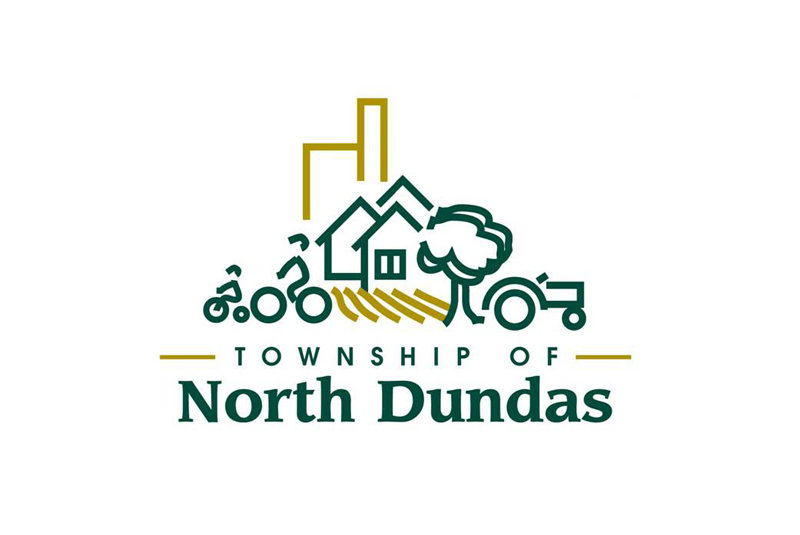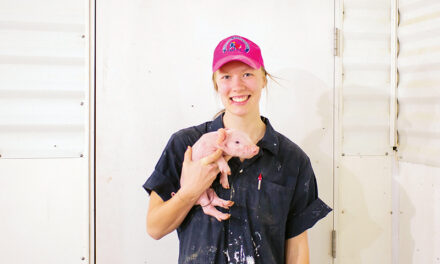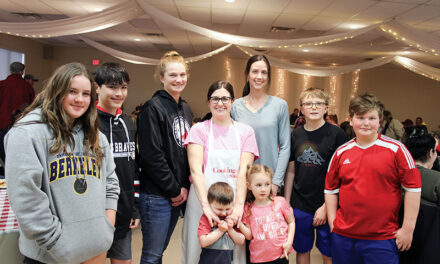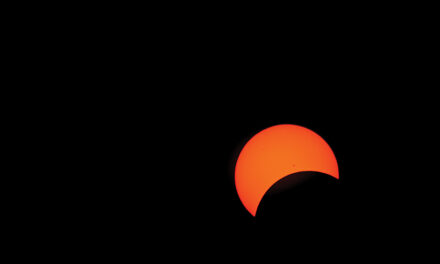WINCHESTER – Amendments to a North Dundas burn bylaw passed in 2019 related to agricultural burning has triggered concern by members of the Dundas Federation of Agriculture, (DFA).
Councillors decided to defer ratifying the 2023 bylaw amendments to the burn bylaw at their March 7 meeting, until members of the DFA have had an opportunity for a second look at any new amendments to the bylaw.
A delegation from the DFA will be coming before the council, at the council’s second monthly meeting in April.
Mayor Fraser said he hopes that discussions about the DFA’s concerns can take place between the municipality and the farming community before the delegation makes its presentation, and hopefully any issues can be dealt with before the final approval of the amendments are made. He believes misinterpretations about the bylaw may have contributed to the DFA’s concerns.
Martin Derks who farms near Chesterville and Tom MacGregor who farms in Morewood attended the meeting.
Derks as a director of the DFA, wrote a letter to the council outlining some of his, and the DFA’s concerns about the bylaw.
He wrote: “The DFA feels that since the council has initiated amendments and opened the bylaw for review, it is imperative that at the same time our farming community be allowed to address all concerns as it relates to all aspects of this bylaw. We ask that a review committee be set up with North Dundas council members, as well as members of the agricultural community in North Dundas, the fire department steering committee, and the chief building officer of North Dundas, and representatives of commercial, and industrial businesses.”
While the council was interested in sharing with farmers information about the bylaw and its latest suggested amendments, as well as answering any of their questions and concerns, no decision was made to create a formal committee to look at the bylaw in its entirety.
Mayor Fraser agreed that businesses and people affected by any bylaw might like to have a review of it from time to time, due to technological advances or changes in a particular process and having input at the front end of any bylaw change process was important.
Fraser said any discussions would be informal between DFA representatives, one or two council members, and municipal staff, if necessary, when questions could be answered.
The letter highlighted the size and scope of the agricultural organization.
“The Dundas Federation of Agriculture, (DFA) represents 430 farmers throughout Dundas County. As the largest general farm organization in the county, we represent all our members regardless of commodities grown.”
Derks pointed out some of the concerns DFA members had, about the amendments and the bylaw in general.
One was the agricultural burn permits’ fee increase as well as the rationale behind fires that are disproportionately agriculture focused.
Another was about the logic, in the change, and addition for written permission of the fire chief’s open air burning.
The bylaw noted that fires would have to take place between sunrise and sunset on any given day.
“No person shall ignite any agricultural land clearing fire or brush fire before sunrise. No person shall set or maintain any agricultural land clearing fires or brushes after sunset on the same day as presented in the July 2019 recommendations to council.
The letter pointed out that the timing of fires was not consistent
with surrounding municipalities.
A concern was that when a burn has been started, it made more sense to let it completely burn itself out, not extinguish it and then start it up again the next day.
The logic behind the sunrise-sunset aspect of the bylaw is that firefighters may be called out several times a day when people report seeing smoke when it is nothing more than the permitted agricultural burn fire taking place.
The letter stated: It has been noted that there have only been 11 Fire Department calls that are grass or brush related in 2022. Could you clarify those which were actual agriculture in nature?
Another question was about the confusion around multiple burnings on the same property or properties.
The bylaw requires that an application for a burn permit has to be submitted for each property that is identified by a separate property identification number, (PIN).
“The DFA has been working to support the Emily 911 Civic signs on farm properties and we question the ease of identification of parcels, (of land) to emergency services. For ease of operation, a whole farm approach will allow for one permit with the location identified on call in, and a quick review across the province many municipalities take this approach at much lower permit fees, and even in some cases zero permit fees.”
The issue of the $75 fee is a concern for farmers.
The letter asked if “The DFA would like to understand the rationale behind the $75 permit increase. We as landowners are currently paying disproportional taxes for services received on agricultural land. If this fee is for cost recovery because of increased work as it relates to bylaw changes, then this cost should not be solely the responsibility of one industry as we pay for fire within our taxes currently at a disproportional rate on services received.”
The 2019 bylaw described climate conditions or other hazards that could affect a burn including the kind of soil the burn will take place on.
“The DFA would like further research and clarification on what is considered a climatic condition. What it is defined as, and who decides this. We have a wide range of soil types in Dundas, all soils are organic in nature, further classification is required.”










